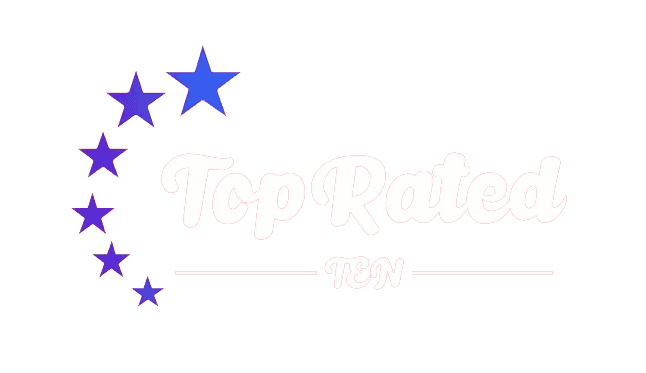Simply put, digital marketing tools make everything better. The right apps will increase your efficiency, decrease errors, and make just about all of your interactions and work activities easier. So, are online marketing tools important? Yeah, we’d say so.
And today, there’s a wide variety of marketing tools for small businesses to help give you an edge on the competition, communicate better with your audience, and convert leads faster and more efficiently. Finding the right one to fit your business needs, now that’s a little tricky.
Fortunately, there are some proven apps that have risen to the top of the charts, time and time again. If you are looking for a way to make your business run smoother, employees work more efficiently, and marketing campaigns more effective, check out the industry-recognized best marketing tools online today.
1


- Best for – Freelancers, email marketers
- Key uses – Email marketing
- Price – From $20
RATING
Exceptional 9.9
Constant Contact is a niche marketing solution. It offers email marketing. That’s it. But what you can do with this email marketing tool is enough to make any business consider this stand-alone option. CC does have other marketing tools as well, including contact management, analytics, and calendar management tools. But email is where it’s really at. With mobile-optimized templates, drag-and-drop editor, and Ecommerce solutions, Constant Contact has everything you could possibly want for your email marketing campaigns.
Constant Contact has excellent automation, as well. You can send out welcome emails for new customers, set up a trigger for email series according to customer behavior, and automatically send reminders for abandoned carts. Constant Contact also lets you build lists and segment contacts for tailored ad campaigns.
PROS
- Segmented lists
- Triggered email series
- Full contact management
CONS
- No SEO
- Gets pricey when your lists get longer
2

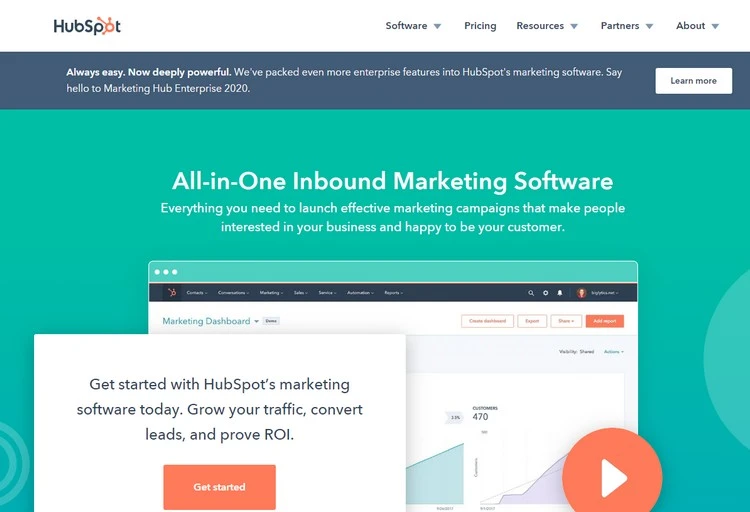
- Best for – Everyone
- Key uses – Email marketing, lead generation, SEO
- Price – From $0
RATING
Exceptional 9.7
Hubspot is possibly the most popular marketing platform around today. Aside from its whimsical help videos and easy to follow site format, Hubspot earned its place at the top by delivering extremely professional, extensive, and powerful tools for businesses. And the offering covers the spectrum from sales to marketing, customer service, CRM, and more. So, it’s not hard to understand why so many companies choose Hubspot as one of the best marketing tools in the industry.
Hubspot goes deep when it comes to its marketing solutions. You’ll find everything, including SEO, email, and social media marketing. But Hubspot takes everything to another level. For example, you’ll get an SEO wizard to walk you through the entire SEO process, data-driven email marketing campaign tools, and social media monitoring tools that are built into your platform.
PROS
- Impressive, professional marketing tools
- Direct response widget for social media mentions
- SEO wizard
CONS
- Plans have a big gap in pricing
- Not enough SEO-self features
3

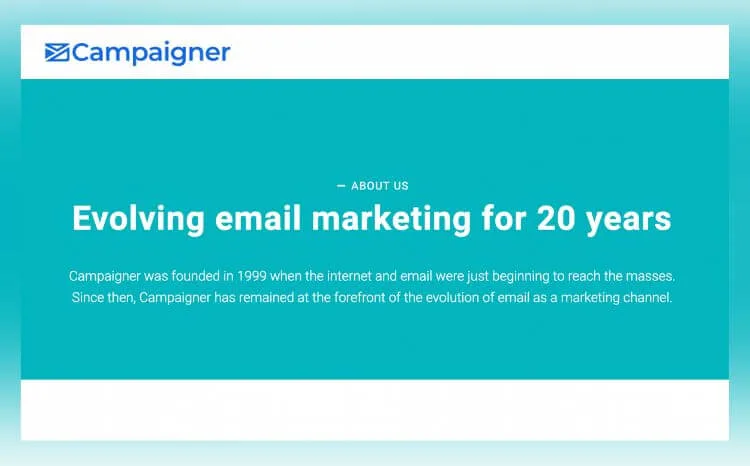
- Best for – Email conversion
- Key uses – Email marketing
- Price – From $59 per month
RATING
Exceptional 9.5
Campaigner is ideal for experienced marketing teams using email campaigns to convert their audience. Beyond an easy-to-use drag-and-drop email editor, it helps you target specific customer segments through dynamic content blocks, as well as use A/B testing and other experiments to optimize engagement rates.
Its Starter plan has more than enough features to get you sending personalized, high-conversion emails, but it’s limited to 5,000 contacts. The Essential and Advanced plans cater to up to 25,000 and 100,000 contacts respectively, and provide tools such as eCommerce integrations and automation workflows.
Campaigner’s main drawback is a limited toolkit for social media marketing and lead generation, and a lack of SEO features.
PROS
- Advanced email personalization
- Automation workflows
- Experiments including A/B testing
CONS
- Limited social media marketing
- Limited third-party integrations
4
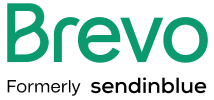
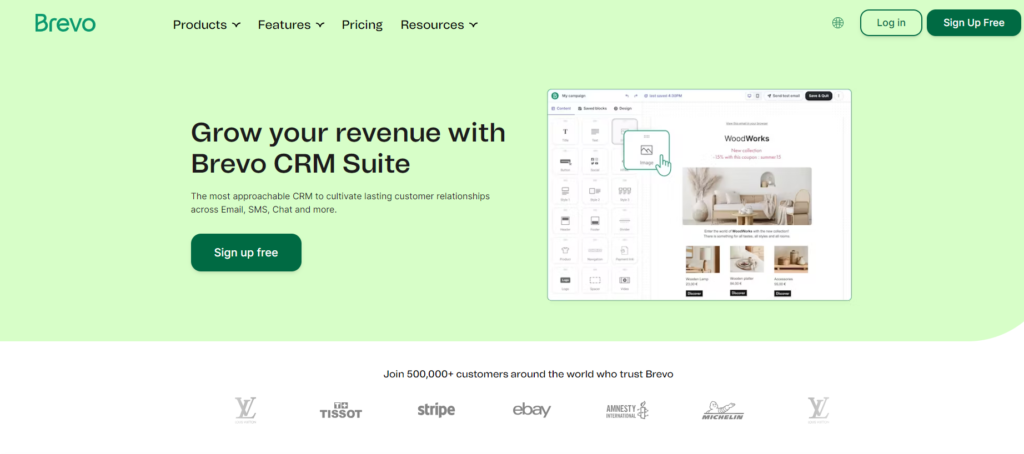
- Best for – A transactional email marketing solution with SMS capabilities
- Key uses – Email marketing
- Price – Start for free and get 300 emails per day
RATING
Excellent 9.3
Sendinblue is an affordable email marketing tool, especially considering the number of features you get. With the free plan you can send 300 emails a day, and 4,000 emails a day when you upgrade to paid plans starting at $25 per month. Sendinblue makes it easy to create, optimize and send email campaigns, and combines SMS reminders with follow-up reminders for transactions.
PROS
- Free plan includes 300 daily emails
- Comes with SMS capabilities
- Easy email campaign creation and analysis
CONS
- May experience delays in sending and receiving emails
- User experience needs improvement for beginners
5
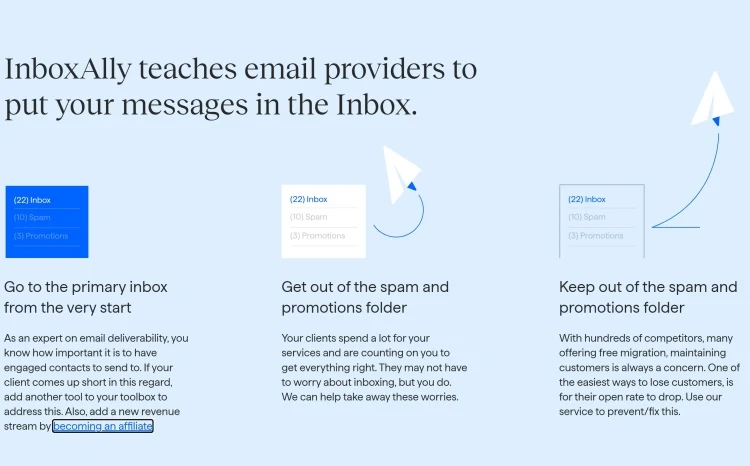
- Best for – Email marketers looking to maximize open rates
- Key uses – Improving email deliverability and open rates
- Price – $149-$1,190 per month
RATING
Excellent 9.1
If your primary concern is improving email deliverability and open rates, InboxAlly is an excellent choice. Its specialized algorithms make it a powerful tool designed for businesses struggling with their emails getting lost in spam folders.
If you’re looking for a more comprehensive email marketing solution with additional features like automation and analytics, you’ll need to consider another platform. But that doesn’t prevent you from also using InboxAlly alongside it to ensure your emails are delivered to your users’ inboxes—and opened.
Why we chose InboxAlly: InboxAlly can complement your mailing list software by providing an additional way to improve your email deliverability.
Our Experience: InboxAlly is a fairly basic tool to use, but we found it did improve the open rate of our emails.
PROS
- Improves the deliverability of your emails
- Set and forget setup
- Helpful and knowledgeable customer support
CONS
- Lacks additional features
- Expensive for low-volume users.
6
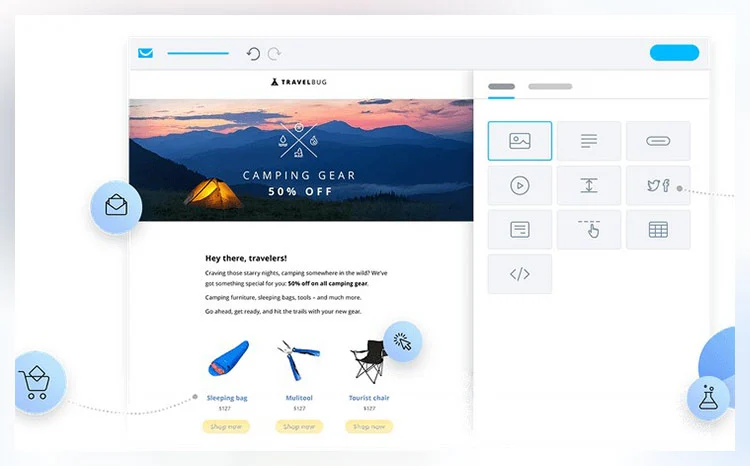
- Best for – Email marketing
- Key uses – Online marketers
- Price – Starting at $10.50
RATING
Excellent 9.1
GetResponse is a lot more than your average email marketing service. In fact, it offers a tremendous variety of features and services that will only bolster your team’s productivity and profit. GetResponse takes things to the next level with features like webinar hosting, full customer retention management software, and dedicated IP addresses. As you climb the ladder of pricing tiers, GetResponse offers more and more impressive services. Get deliverability consulting, transactional emails, and a dedicated account manager to help with troubleshooting and campaign consulting.
Of course, GetResponse has the usual features you’d like to see with an email marketing platform, as well. Features like autoresponders, landing page designer, automation templates, Facebook Ads, and contact scoring and tagging will help your company maximize those leads and convert them into paying customers. Find out more about what GetResponse has in store for your business today.
PROS
- Premium features and services outside the standard suite
- Autoresponders, RSS to email, and other campaign tools
- Web forms, list builders, surveys
CONS
- Gets expensive quickly if you want more advanced features
- A/B testing could be stronger
7

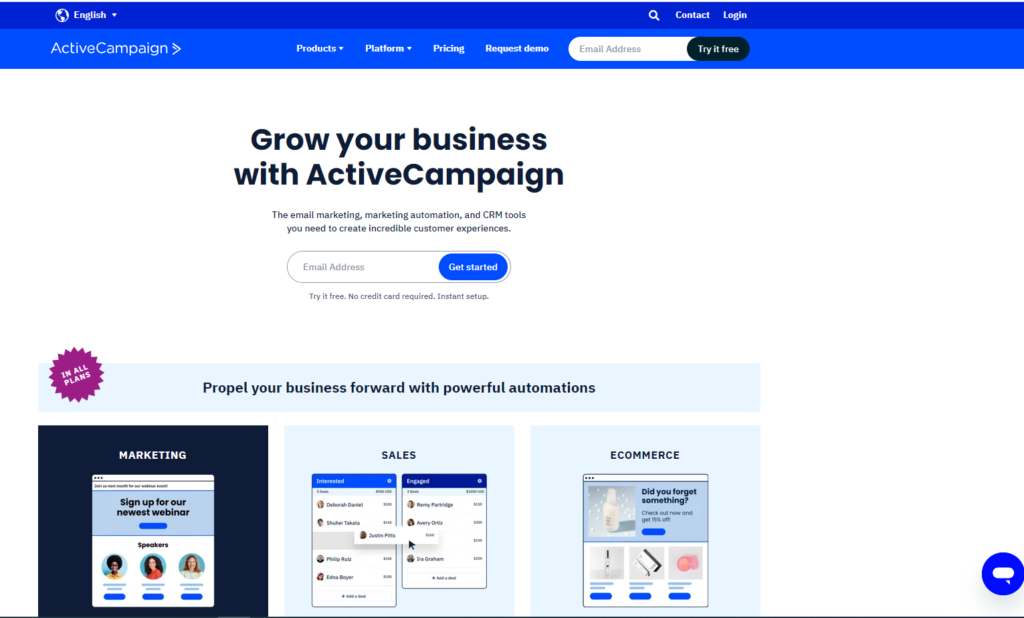
- Best for – Local businesses, SMBs
- Key uses –Unlimited email sends with all plans, high deliverability and advanced automations
- Price –$29 per month
RATING
Very Good 8.9
ActiveCampaign is a popular email marketing platform with industry-leading advanced automation features, analytics and reporting. While it’s not the most beginner-friendly platform on the market, it is a good value for businesses with large email lists as its entry-level plan costs $29 per month (with annual billing) and includes unlimited email sends per month for up to 250,000 contacts. To help you decide if it’s the right solution for your unique needs, the experts at TopRatedTen.com put it to the test based on features and capabilities, pricing, customer support, and more with our hands-on ActiveCampaign.
PROS
- Free contact migration service
- High deliverability rate
- SMS campaigns
CONS
- No free plan
- It’s entry-level Lite plan offers very few integrations
8

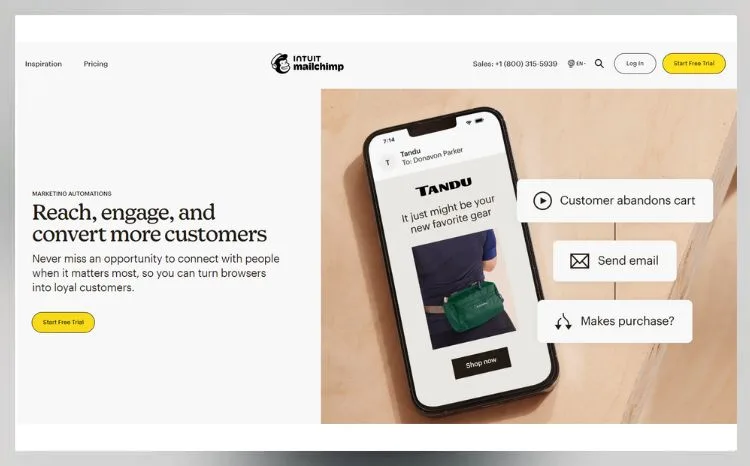
- Best for – Small to medium-sized businesses
- Key uses – Email marketing
- Price – From $0
RATING
Very Good 8.8
Mailchimp is a versatile and user-friendly marketing tool service that empowers businesses of all sizes to effectively reach their target audience. It offers a comprehensive suite of features, including email marketing, automation, audience segmentation, landing pages, and social media management. With its intuitive drag-and-drop editor, creating visually appealing campaigns is a breeze. The platform also provides detailed analytics and reporting, allowing users to monitor the performance and impact of their marketing efforts.
Mailchimp offers a range of affordable plans to suit different budgets. Its user-friendly interface makes it accessible to beginners, while advanced users can take advantage of its extensive customization options. With its robust integration capabilities, Mailchimp seamlessly integrates with popular e-commerce platforms, CRMs, and other marketing tools, ensuring a streamlined workflow.
Overall, Mailchimp is a reliable and efficient marketing tool service that caters to the needs of businesses seeking to enhance their marketing campaigns, engage their audience, and drive growth.
PROS
- User-friendly interface & ease of use
- Robust email automation capabilities
- Extensive integration options with other platforms
CONS
- Limited customer support for free plan
- Pricing can be costly for high-volume sending
9
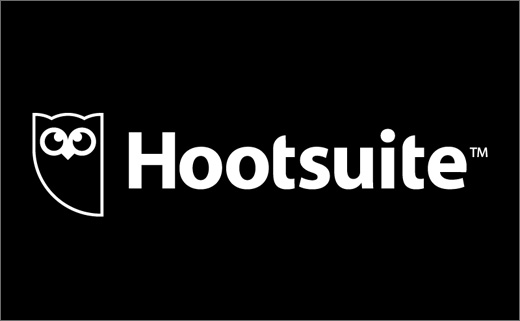
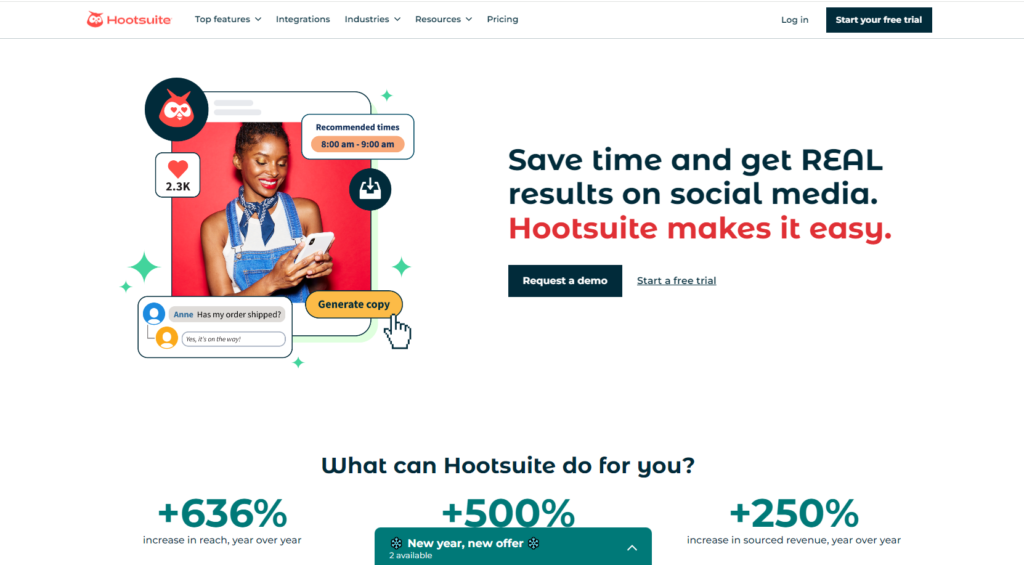
- Best for – Marketing Teams, small & Large businesses
- Key uses –Content planning, user engagement, robust data and insights
- Price –$99 per month (billed annually)
RATING
Very Good 8.7
Hootsuite is one of the oldest social media management tools in the industry. It boasts a wide feature set that serves as a digital social media manager. Granted, it doesn’t eliminate the need for an in-house marketing professional but it does help supercharge their social media marketing efforts. While it used to offer a free plan, it has discontinued it as of March 2023 and with prices starting at $99 per month (with annual billing), it’s not the most affordable option on the market. Find out if it’s the right choice for you with our hands-on Hootsuite review.
PROS
- Multiprofile scheduling
- Post time optimization
- Integrates with Canva
CONS
- No longer offers a free plan
- It’s expensive
10
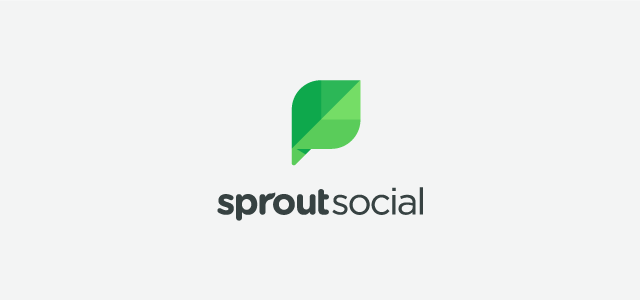
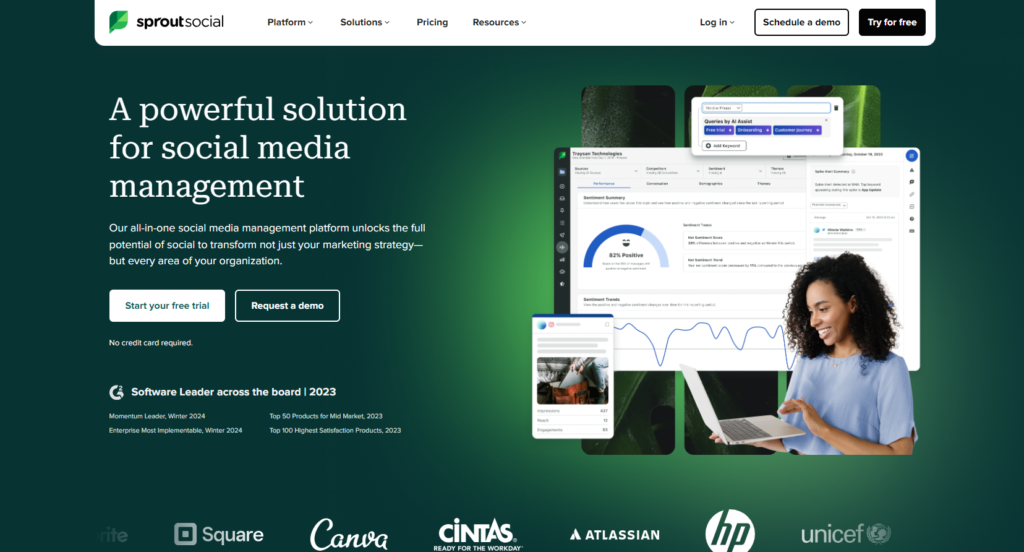
- Best for – social media management tool
- Key uses – Centralized social inbox, reviews management and advanced analytics
- Price – $249 per user, per month
RATING
Good 8.5
Sprout Social has become a popular social media management tool for businesses that are looking for an easy way of managing their social media marketing efforts in one centralized location. Though it’s not the most affordable solution in the market with plans starting at $249 per month, it is feature-rich and user-friendly. Learn more about its features, capabilities and more to decide if it’s the right choice for your business.
PROS
- User-friendly
- Schedule and publish content
- Centralized social media inbox
CONS
- No free plan available
- It’s expensive
Best Marketing Tools compared
Top 10 Best Digital & Online Marketing Tools In 2024
 |  |  |  |  |  |  |  |  |  | |
|---|---|---|---|---|---|---|---|---|---|---|
| Best For | Freelancers, email marketers | Everyone | Email conversion | A transactional email marketing solution with SMS capabilities | Email marketers looking to maximize open rates | Email marketing | Local businesses, SMBs | Small to medium-sized businesses | Self-employed, small businesses | Email automation |
| Key uses | Email marketing | Email marketing, lead generation, SEO | Email marketing | Email marketing | Improving email deliverability and open rates | Online marketers | Email marketing, lead generation, hosting | Email marketing | Business management, automation, email | Email automation and segmentation |
| Price | From $20per month | From $0 | From $59 per month | Start for free and get 300 emails per day | $149-$1,190 per month | Starting at $10.50 | A la carte pricing | From $0 | From $19 | From $249/month |
| Free Trial | 30-days | Forever free plan | 30-day free trial | 14-day free trial | 10-day free trial | 30 days | 60-days | 10-day free trial | 14-days | 14-days |
| Customer Support | Phone, live chat, email, experts on call | Live chat, phone, email support | Toll-free phone in the US, Canada, and the UK, and email support 24/7 | Phone, email, contact form | Email, live chat, and phone support | 24/7 live chat | Phone and email support, webinars | 24/7 | Demos, email, phone, setup assistance | 24/7 |
What Are Marketing Tools?
Digital marketing tools is a broad category that covers a spectrum of useful apps. Generally, the term refers to any software that is used to help your business run more efficiently and enhance your marketing efforts. This can include things like ad campaigns, analytics, project management, and a whole lot more we’ll look at in more detail in just a minute. As you can see, it’s a pretty wide range of tasks that online marketing tools cover. Luckily, a lot of the tools are free, and many of the paid-for apps bundle several of these management functionalities into a single service. So, you’re really getting your money’s worth.
Who Can Benefit From Marketing Tools
Everyone. It’s really that simple. Just a quick look at the list below will show you how many different aspects of your business management digital marketing tools can control. So, whether you are a content writer, a project manager, a marketer, or any other of the tens of job titles out there, you can gain tremendously from these apps.
In terms of businesses and niches, there’s no brand out there today that won’t benefit from some type of marketing software. There are currently more specific marketing tools for small businesses that narrow down the functionality so that you aren’t overwhelmed with options, and also cuts back on the price for limited budgets. So, the question isn’t so much who can benefit from online marketing tools, but rather which are the right tools to help you maximize your business efficiency.
Types of Marketing Tools
As we mentioned already, there are a lot of different types of digital marketing tools available today. The most commonly-used ones include software that will help you manage the most important aspects of your business and marketing efforts, including:
- Social media marketing
- SEO
- Website
- Design
- CRM
Here are a few examples of the best marketing tools online today:
- Ad campaign apps like Facebook ads, Google Adwords, Bing Ads
- Analytics tools like Google Analytics and Yandex Metrica
- Project management tools like Monday or Trello
- Social media marketing campaign management like Hootsuite or Buffer
- Email marketing like MailChimp and Constant Contact
- Sales and CRM software like HubSpot
The Importance of Holistic Marketing
The main takeaway here is that digital marketing tools are not a single app performing a single task for a single set of use cases. On the contrary, it’s a category of tools that covers a tremendous spectrum of functionality. A forward-thinking company will find and incorporate the right blend of online marketing tools for their situation, maximizing efficiency, and really making their business management and marketing efforts pop. From task and project management software to help setting up your email marketing campaigns, the best marketing tools are the wave of the business future. So grab a board, and hang ten!
Frequently Asked Questions
Wix.com is one of the leading online marketing tools, offering everything from web design to SEO tools and email marketing services. Other popular providers include SquareSpace and Network Solutions.
Wix and Network Solutions are two popular tools for small businesses due to their competitive pricing and flexibility. Small businesses typically choose marketing tools that are flexible, easy to use, and scalable.
Marketing managers use a variety of tools to improve their marketing efforts, from SEO tools to analytics that track traffic and ad campaign success. Other tools may include email marketing, CRM, and project management software.
